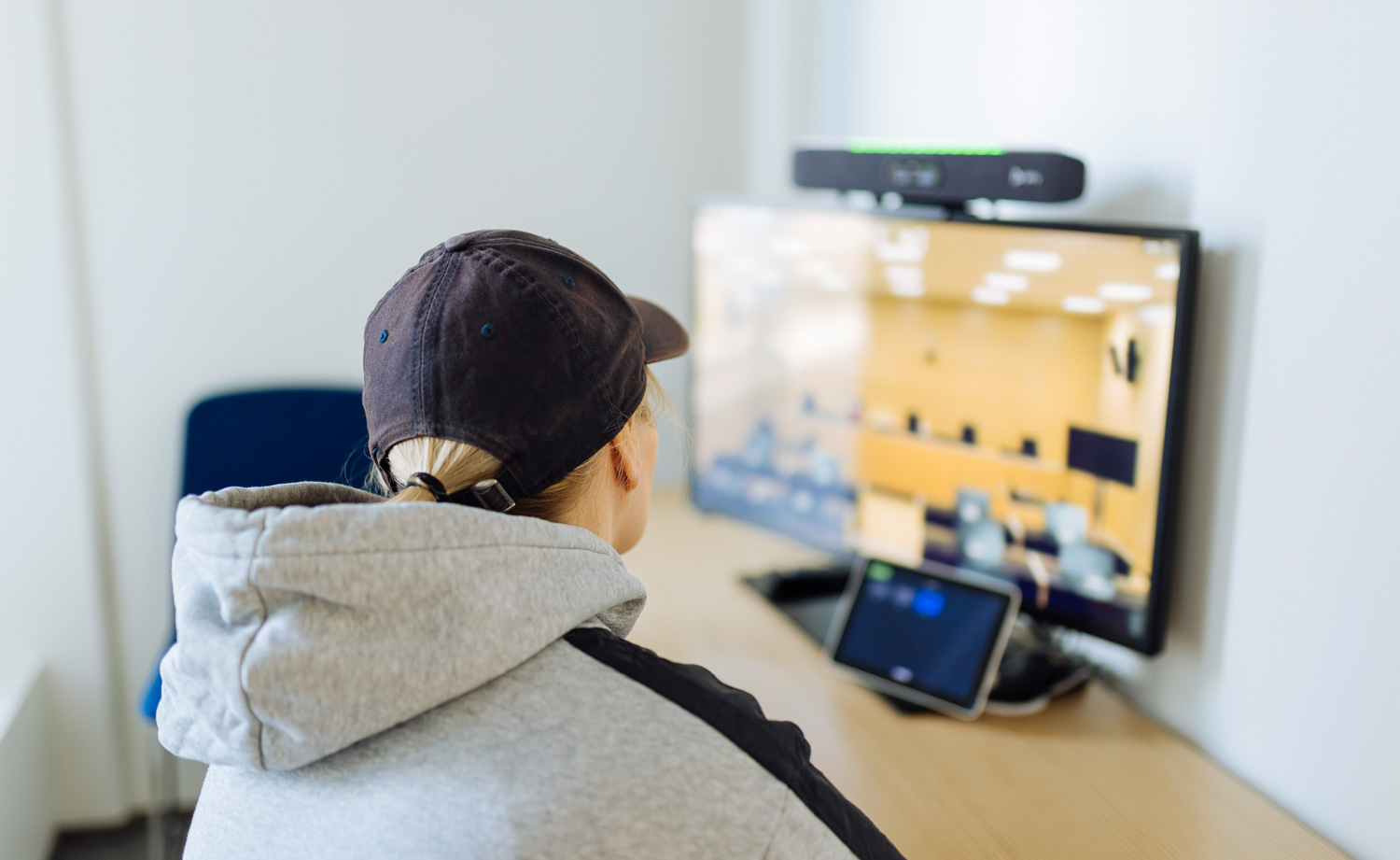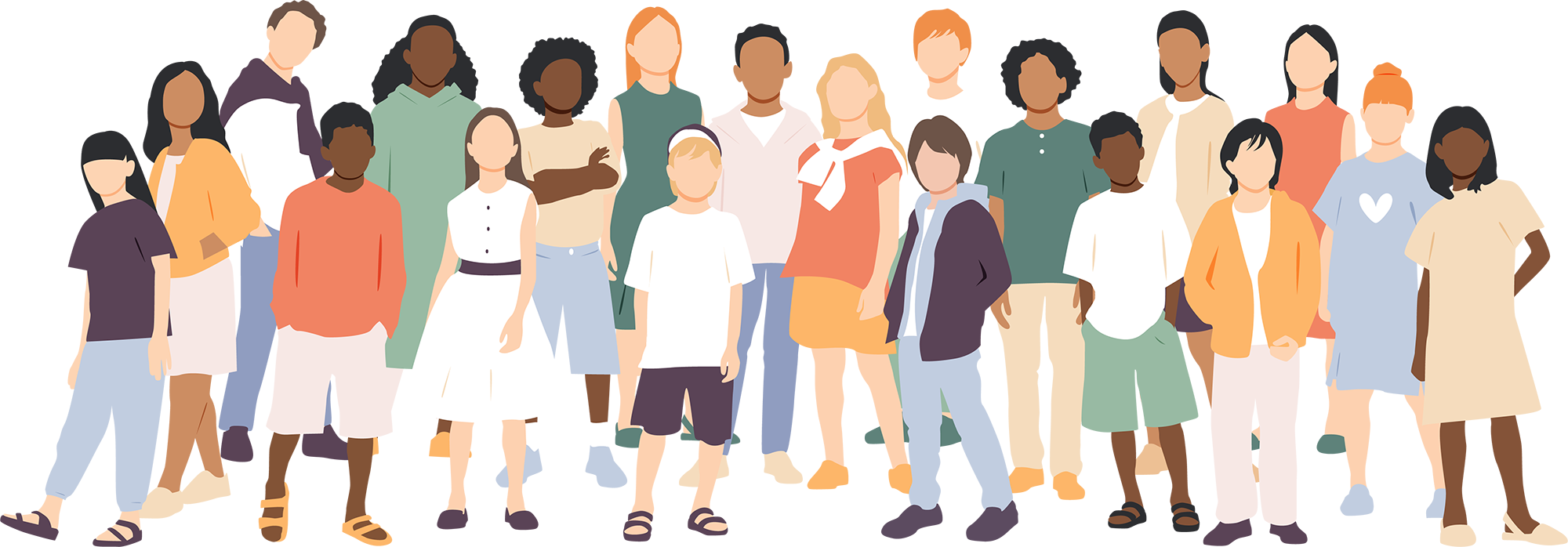A child or a young person as a witness in court
You may have been involved in a situation where something extraordinary has happened and the law may have been violated. In that case, it is important that everyone who knows something about it should inform the police. If the matter is investigated later in a trial, you may also be summoned to a court hearing as a witness to tell what you know about what happened.

In the trial, you will first be asked to tell what you remember in your own words, after which the parties to the trial may ask you questions. At first, the presiding judge will repeat what is expected of you or what you will do if you do not know how to answer a question.
You have to tell the truth in court. As a witness, you are an important source of information, and you are not supposed to be on anyone's side or against anyone, but to tell things as you remember they happened. If you don't remember anything, you have to say that you don't remember or are not sure.
Watch video 'as a witness in a trial' with English subtitles (Youtube)Avautuu uuteen välilehteen
Watch animated video of testifying in English (Youtube)Avautuu uuteen välilehteen
Yes, you do. You must come to the court hearing, even if it feels bad and you think you can't tell anything meaningful. Usually, time has elapsed, and it may be difficult to remember, but it is still necessary to respond to the summons.
If you do not come, the trial may have to be cancelled, and this will cause a great deal of trouble and unnecessary costs. Unnecessary absence also has unfortunate consequences for you. For example, you may receive a financial fine.
Only witnesses aged 15 or over are usually summoned to court hearings, but the matter can be examined in some other way with children younger than this.
Watch the video 'appearing in court' with English subtitles (Youtube)
If someone tells you not to testify or acts threateningly or pressures you, tell about this to a close adult or police officer. Nor must anyone else influence what you say as a witness. A witness must not be threatened, pressured or manipulated into telling things incorrectly. This is a serious matter, and you should not be left alone with it.
If the thought of witnessing is distressing or frightening, you may feel comfortable, for example, by taking a support person with you. You can ask for a support person free of charge from Victim Support Finland RIKU . You can discuss the future trial and related questions confidentially with the support person. You can also take a family member or other close person with you as a support person.
Arrive at the courthouse in time on the day of the court hearing. Especially in the morning, a security check may be congested. In other respects, it is good to prepare for possible delays on the day of the session. The witness is only present in the Chamber while he is being heard. Usually this happens only at the end of the trial, which can mean waiting.
When it's your turn, the judge will announce you to come in the courtroom.
The court hearing shall be chaired by the presiding judge. His or her role is to listen to what the parties have to say. The judge is often assisted by a secretary who records the key points of the trial. You can contact the secretary if you wish to ask about the arrangements of the hearing.
When a criminal matter is considered in a trial, the prosecutor is also present at the hearing. The prosecutor's task is to inform the judge, and other persons present about the offence in question and how, in his or her view, the offence has been committed. The prosecutor also makes a request for a punishment.
If there are eyewitnesses or other persons who know something about the events, they may be heard as witnesses in the matter. Witnesses arrive at the court hearing at their turn and are present only during their own testimony. The chairperson will call the witness in to the court room, when it is his or her turn.
There is also often a variable number of lawyers present at the hearing, i.e. persons with legal training. Their job is to assist their own client during the trial. For example, a person suspected of an offence and a victim of an offence may have their own legal counsel, both their own. A minor may also be accompanied by a guardian if his or her own parents cannot be guardians.
Sometimes an interpreter is also present at the trial if one of the parties does not speak Finnish or Swedish as his or her mother tongue and he or she has difficulty understanding the matters to be dealt with in the trial. In that case, the interpreter has the duty to translate all the speeches in the proceedings in such a way as to enable the party to understand what is going on in the proceedings. The court shall arrange for an eventual interpreter to be summoned.
Because the trials are public in Finland, journalists or other members of the public may also be present.
At the beginning of criminal proceedings, the prosecutor makes the claims, after which the defendant, the accused, is asked whether he or she accepts or contests them. The accused and the victim will then be allowed to give more detailed reasons for their position and comment on what others have said.
In the trial, documentary evidence is examined together, and, for example, a surveillance recording will be watched if there is one. Other evidence may include photographs, messages, medical certificates and payment receipts.
In addition, persons, or witnesses, present or involved at the time of the incident will be heard.
Testifying may be carried out in such a way that the accused person is not at all present in the courtroom or with visual protection between the witness and the accused person.
Sometimes a hearing can be conducted via a video connection if it feels safer or the distance is long.
If you have questions about testifying in case you do not wish to face the accused, you should contact the judge or secretary handling the matter in good time.
After you have testified, you will be entitled to compensation. You will at least be compensated for travel expenses to court and a small lump sum, i.e. daily allowance.
Once you have given your testimony, the presiding judge will tell you more about the compensation. The compensation amount will be uploaded to a prepaid card that you will receive and will be available to you immediately after the trial.
Read more about compensation for attending a trial

Published 21.3.2025
